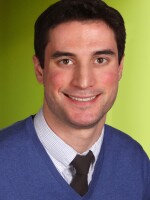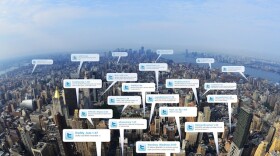You don't have to know the answer to every question. And a little cartoon dog named Sam will pop up to let you know if you messed something up.
If this sounds a little better than sitting on the phone trying to recall your lengthy medical history and names of all the prescriptions you're taking, you're not alone. Dan Coholan and Mike Horning think so too. That's why they launched Simple Admit.
Simple Admit is a web-based admission system Coholan and Horning started three years ago in Baldwinsville, northwest of Syracuse. It allows patients to fill out all the forms on their medical history, medications they’re on, etc. on their own time - and from home, instead of having to do it in a waiting room or over the phone.
When the pair started out, they hoped about a third of patients would use their system. But they’re seeing an uptake averaging around 71 percent. The more surprising thing, Coholan says, is that the demographic you’d think would be the most averse to using it - the elderly - are some of its most avid users.
"We underestimated out clientele, sort of speak," he says.
"It's alarming," Horning chimes in. "They're probably our best participation rates," he says of the elderly.
Coholan thinks the reason is that older patients pay more attention to their health care. And/or they're good at involving more tech-savvy family members.
Growing quickly
At the end of last year, Simple Admit was in a dozen doctor’s offices. They’ve since grown to a hundred surgery centers across 32 states. They expect to double that over the course of 2013.
Since Simple Admit customizes each digital form per doctor's requests, the company's rapid growth also means hiring more workers. There are 10 people now working on Simple Admit, and they've also had to create a call center to offer customer support for both patients and doctor's offices.
Initially there was some pushback from staff in the doctor's offices where Simple Admit was being rolled out, but Horning and Coholan say once staff realized this meant more patient care and less clerical work, they were on board.
Coholan says they're also seeing people being more honest and thorough filling out the forms because patients are less inhibited than when they talk to a nurse on the phone.
"I wish we could say we were that smart when we first built it, but that wasn’t really the case," Coholan says. "All of these little plusses have come...that has made this just a really innovative piece."





